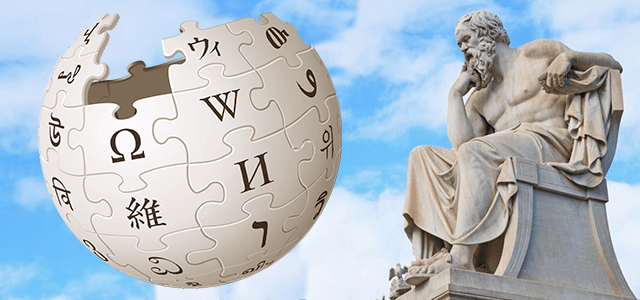Collaboration, teamwork and an organisation-wide learning culture don’t immediately spring to mind when you think about elearning. The tradition has always been training undertaken by the individual, who works independently of everyone else. After all, to hold them accountable, you need each employee’s data.
But what if it didn’t have to be that way? What if you could generate a training culture in your organisation where elearning courses are complemented by collaboration?
The solution might lie with two paradigms developed thousands of years apart.
The first of these paradigms lies with the Greek scholar, Socrates. He developed an approach to learning two and half thousand years ago – and it’s still used today. Admittedly, the Greek authorities condemned the man for ‘corrupting Athenian youth’ but, even so, his wisdom has outlived those narrow-minded bureaucrats.
Socrates introduced the concept that learning needs three things:
- A person must accept what they do not know
- That person must realise that self-knowledge/understanding is desirable
- Truth, including self-awareness, comes through questioning and being curious
The ‘Socratic Method’ involves posing learners with a question. Once they answer, the questioner challenges them to prove or support their answer. Hypothetical questions and additional facts are used to fine tune or clarify beliefs or statements. In the end, the student gains insight and validation as they defend their views. This process might sound confrontational, but it’s not. Frequently, Socrates went walking with his students and this process took the form of an intellectual discussion.
Now to the second paradigm:
Online Collaborative Learning (OCL) is described as ‘a new theory of learning that focuses on collaborative learning, knowledge building, and internet use as a means to reshape formal, non-formal, and informal education for the Knowledge Age’ (Linda Harasim, 2012).
Look at that definition again. Notice the use of collaboration and internet sources to provide answers? It’s Socrates – but where knowledge sources are online, and the insight and validation comes from the collaborative process – no doubt what Socrates would have used these days; walking with his students as they Googled information on their devices to validate their point of view.
This model has been further refined, into a process:
Content availability: such as elearning courses/online
Social and collaborative classroom-based discussion: deepens the level of understanding of that content using wikis, reports, fact sheets etc.
Reflection: learners reflect on what’s been assimilated in a survey, blog, journal etc.
Outcomes: these can become reports, discussion boards, policy documents, wikis etc.
Assessment and evaluation: where individuals identify what they’ve gained and understood from this process.
The idea of the Wiki is a 21st century concept and one Socrates would have approved of…
The definition of a Wiki is ‘a website or database developed collaboratively by a community of users, allowing any user to add and edit content’. Obviously, the information needs consistent validation, but it can be both an outcome AND a source of information for others in the organisation. It represents collaboration in terms of process AND product. It’s a ‘bottom-up’ approach to sharing information, formulating policy and developing a learning culture – because everyone can be a part of it.
So, if Socrates was with us now, he might suggest that elearning doesn’t need to be entirely individually-orientated. It can be part of a collaborative process that deepens learning beyond the simple acquisition of knowledge, where that understanding is refined and shared across the organisation.
It’s a solution for your organisation from two and half thousand years ago!
Phil Parker, Learning Development Consultant, Nimble Elearning


0 Comments